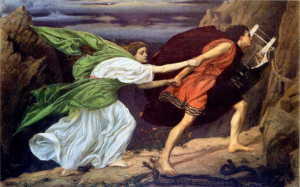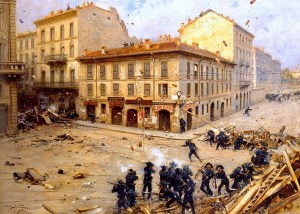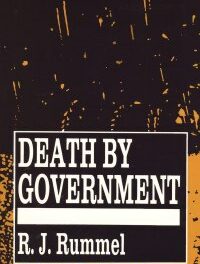We support our Publishers and Content Creators. You can view this story on their website by CLICKING HERE.
Like love, like gambling, like the other passions that are tangled with the roots of man’s nature, the thirst for an intoxicant has a purpose, but that purpose is subservient to man’s destiny.
The Space of Life Between, by Bede Jarrett (174 pages, Cluny Media)
I.
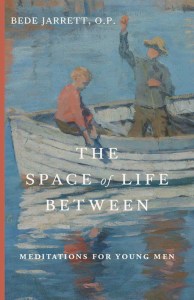 Amongst all peoples love and wine have been for good and ill, in defence and in denunciation, bracketed together. Everywhere the vine has woven its tendrils round the statue of Beauty in the vineyards of Engaddi; for both from one and the other man has gained a sense of rapture that lifts him out of the level of his normal days. Early in the history of tribes wine is always a sacred thing, proper to the altar, making man frenzied and somehow divine, so that a thrill beyond the reach of ordinary experience passes through him and sets in him the stir and wonder of a life wider, ampler, more free, than the life he is familiar with. In mythology it is the gift of a god, who suffers sometimes the same fate as that other friend of man, Prometheus, who first gave him fire. Yet the vine, they thought, for all its beauty of form and colour, was of the earth, drawing from the earth its life, and helplessly dependent on the earth for its existence, its growth, and continuance. The bewildered mind of man seeing no proportion between the soil whence the vine sprang and the airy unsubstantial dreams to which it gave birth, sought for a more imaginative origin for it and seemed to find that only a heavenly source was adequate to explain its effects.
Amongst all peoples love and wine have been for good and ill, in defence and in denunciation, bracketed together. Everywhere the vine has woven its tendrils round the statue of Beauty in the vineyards of Engaddi; for both from one and the other man has gained a sense of rapture that lifts him out of the level of his normal days. Early in the history of tribes wine is always a sacred thing, proper to the altar, making man frenzied and somehow divine, so that a thrill beyond the reach of ordinary experience passes through him and sets in him the stir and wonder of a life wider, ampler, more free, than the life he is familiar with. In mythology it is the gift of a god, who suffers sometimes the same fate as that other friend of man, Prometheus, who first gave him fire. Yet the vine, they thought, for all its beauty of form and colour, was of the earth, drawing from the earth its life, and helplessly dependent on the earth for its existence, its growth, and continuance. The bewildered mind of man seeing no proportion between the soil whence the vine sprang and the airy unsubstantial dreams to which it gave birth, sought for a more imaginative origin for it and seemed to find that only a heavenly source was adequate to explain its effects.
But while to the primitive mind and to the mind of the poet, wine was sacred, heaven-brought, to the less ignorant and less visionary it was merely ribald and amusing in its effects. The man staggering under the mood of its excess, with pugnacity or helplessness, with his mixed eagerness and lethargy, presented chiefly its comic side. He was so ineffectual in all he aimed at, in all he strove to be; lurched so unevenly when he most needed steadiness, that the sharp incongruities between his efforts and their lack of attainment, between his words and their ideas, between his words and their pronunciation, caused an irresistible impulse to laugh. The comic element is so obvious, so droll, and so evidently unintentional, that the sight of drunkenness produces roars of laughter.
For all its beastliness, its most dominant impression on the beholder of it is its appeal to his sense of humour.
III.
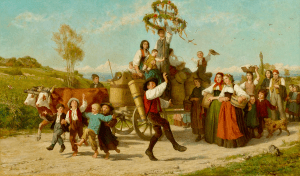 How strange a thing! To excite laughter and derision by showing man as low as any of the brute creation (lower, in fact, since the greater height from which he falls is obvious in the comparison), and yet to lift him to conditions wherein he seems more neighbourly to the gods, to render him ineffectual and yet endow him with ampler dreams, to pitch him into incongruities and yet to rescue him from his dull normal dreariness. What strange thing is this that man has made, his plaything yet his tyrant, the child of his invention, but at times the master of his will. Well, there you have the paradox of wine. It is no real solution of the problem of intoxication to prohibit drink altogether; you may, by law, defer its use for a while, or hold it over, or keep it back till man is likely to be more impartial in his judgements of it. But can one do more? It is at best a temporary expedient. It must fail. The problem has to be solved really by each individual for himself. Temperance is essentially a measure that for its effectiveness must be settled by me for myself.
How strange a thing! To excite laughter and derision by showing man as low as any of the brute creation (lower, in fact, since the greater height from which he falls is obvious in the comparison), and yet to lift him to conditions wherein he seems more neighbourly to the gods, to render him ineffectual and yet endow him with ampler dreams, to pitch him into incongruities and yet to rescue him from his dull normal dreariness. What strange thing is this that man has made, his plaything yet his tyrant, the child of his invention, but at times the master of his will. Well, there you have the paradox of wine. It is no real solution of the problem of intoxication to prohibit drink altogether; you may, by law, defer its use for a while, or hold it over, or keep it back till man is likely to be more impartial in his judgements of it. But can one do more? It is at best a temporary expedient. It must fail. The problem has to be solved really by each individual for himself. Temperance is essentially a measure that for its effectiveness must be settled by me for myself.
Like love, like gambling, like the other passions that are tangled with the roots of man’s nature, the thirst for an intoxicant has a purpose, but that purpose is subservient to man’s destiny. Normally, it has only to be controlled. Abnormally, it may have to be renounced. How far is it needed by me? How far does it hinder me? No one can tell but the man himself. Certainly, drunkenness is beastly, despite its comic appearance. We must avoid it ourselves. We must never instigate another to drunkenness, as though it were a practical joke or a mere lark. We may not, however, forbid intoxicating drink to those who find it a help towards work and life, or even a source of harmless joy.
This essay is an excerpt from The Space of Life Between by Bede Jarrett and is republished with gracious permission from Cluny Media.
Imaginative Conservative readers may use the code IMCON15 to receive 15% off any order of not-already discounted books from Cluny Media.
The Imaginative Conservative applies the principle of appreciation to the discussion of culture and politics—we approach dialogue with magnanimity rather than with mere civility. Will you help us remain a refreshing oasis in the increasingly contentious arena of modern discourse? Please consider donating now.
The featured image is ‘The Wine Festival’ (1865) by Albert Anker, and is in the public domain, courtesy of Wikimedia Commons.
Share This Story, Choose Your Platform!
Go to Top

 Conservative
Conservative  Search
Search Trending
Trending Current News
Current News 
